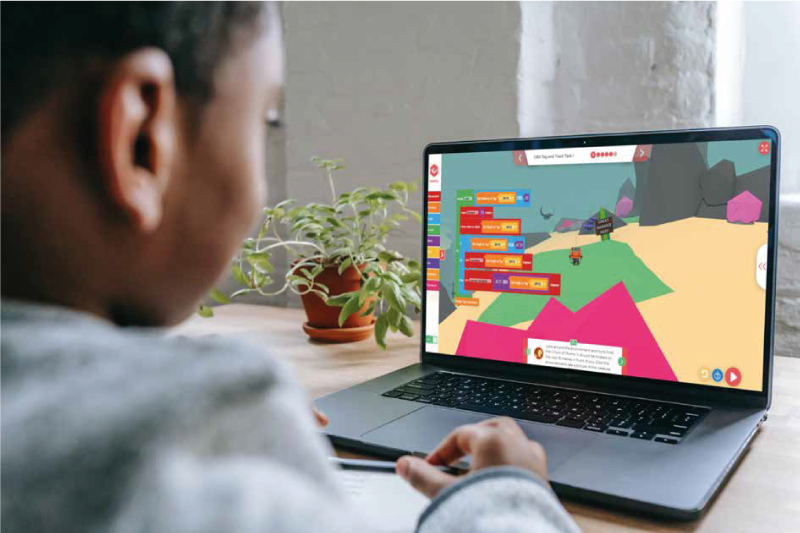Coding for Children With Learning Disabilities
According to the reports published by UNISEF in 2021, about 240 million children suffer from disability. Learning disability (LD) is becoming a serious concern as more & more kids are identified with symptoms that restrict their full potential to thrive during the most important developmental years in school. Most LDs are identified in pre-school years, however some students don’t find out until college years.
Types of Learning Disabilities
#1 Dyslexia:
In dyslexia the learner has a problem reading as he has a difficulty matching letters to its sounds. Dyslexia is a disability that affects the part of the brain which processes language and speech. This is the most common type of LD and 1 in every 10 children suffer from Dyslexia.
#2 Dysgraphia
The handwriting of children with Dysgraphia isn’t too clear. There are issues with spacing between words, and the legibility isn’t proper. Dysgraphia hampers the fine motor skill development of students at young age and thus it hinders the overall development process.
#3 Dyscalculia
Dyscalculia is a disorder where it becomes rather difficult for the child to comprehend numbers and math calculations. Students have trouble identifying numbers, counting, and performing multiplication & division functions.
#4 ADHD
The symptoms of ADHD include difficulty in focusing and the child becomes hyperactive, leading to impulsive decision making. The traits are usually demonstrated by the age of 6 and it causes one to suffer at school, due to short attention spans and having problems staying organized. If not treated or controlled, it may lead to Anxiety disorder later.
Above, we have mentioned just a few types of LDs, but the list is even more expansive.
Coding in Schools
Coding has become a mandatory subject in schools due to the IB culture picking pace up in Dubai and other Middle East regions. Robotic extra-classes are held on campus and children are encouraged to participate in inter-school Robotic competitions to display their tech prowess.
Now the question arises, how can a student suffering from learning disability study coding or try their hands on inventing a Robotic masterpiece?
When teaching coding there is a combination of language, analytical skills, reading skills, and vocabulary involved, which students with LD lack.
Those suffering from ADHD may find it difficult to pay attention to the intricacies required to code a topic and thereby apply problem-solving approaches to debug the software.
Looking at this topic from a positive periscope, there are advantages that can actually improve the condition of students with LD. Let us highlight how this can happen;
Confidence Building Exercise
It is true that students who have LD usually seem to have a low self-esteem. Coding is a practice that makes the learners confident, because one is allowed to experiment and use easy Scratch programming with drag & drop feature to give the computer commands and make it do as told. Just imagine what a boost it is for a student who is a little weak in studies, to be able to create his own App which may solve the problems of a society. Thus, many schools in GCC encourage integrating Robotify as a platform to start teaching coding of Robotics at an early age, to everyone in school.
Creates a Sense of Inclusiveness
When assigned a group activity to the class, especially a one that’s a coding project, the student with LD feels involved, as he feels a part of the team and can actually contribute towards realizing the goals. Inclusive Education has been embedded in IB school culture across the UAE and team-bonding gives students an opportunity to increase their inter-personal skills. The best part about group-work is that strengths and weaknesses are analyzed and basis each one’s capabilities, work is assigned or divided.
So, next time as a parent if you are hesitant of enrolling your kid into coding or Robotics classes, research the advantages one can gain, which may better the child’s condition and improve the condition of being LD.







Recent Comments